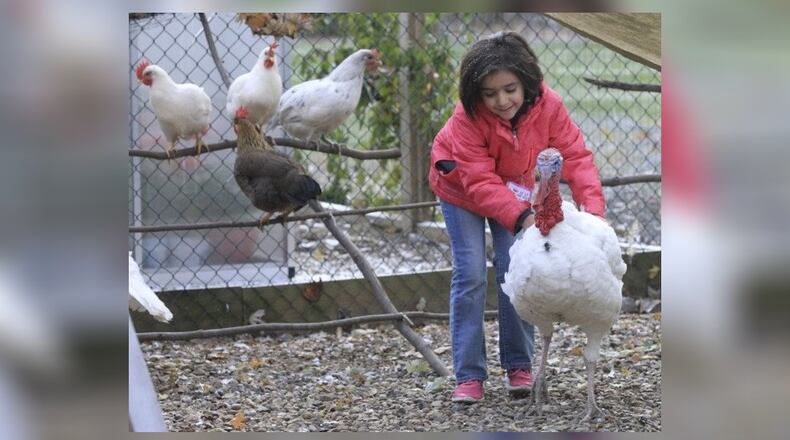The new ordinance was written because residents commented that it was expensive for children to participate in 4-H programs because they cannot raise chickens or ducks at home. The families have to rent space to house the animals.
“I want to make it more accessible for children to participate,” said Julie Denning, chief of the city’s planning commission. “This allows them to do it at home without the extra costs.”
Denning also owns chickens under the current ordinance.
There are benefits to owning chickens, Denning said. Chickens eat bugs, such as ticks, and she has not found any on the family dog. They can be a protein source for lower income families who might not be able to afford eggs.
Chickens lay four to six eggs a day.
The planning commission worked to construct a document that was simple but structured to make the rules clear and concise. The guidelines would include:
— No more than six chickens, ducks or a combination of the two.
— Lot is a single-family dwelling, no apartments
— No property shall own, keep or harbor a rooster
— Chickens and/or ducks should not cause noxious odors or in unsanitary conditions that results in a public health concern
— Must have a covered enclosure and the animals must be kept in the covered enclosure or fenced enclosure at all time, plus shielded from the street
— Enclosure must be located in the rear of the yard
— No enclosure can be located closer than 25 feet to any residence on an adjacent lot unless there is a buffer around the property that can include a fence that is six feet in height
— No enclosure can be located closer than 10 feet from a property line Residents cannot sell the eggs A permit is required to ensure compliance with the regulations
If the ordinance is passed, the council will review with the planning commission in a year the data to see if there have been more or less complaints about the animals and if the ordinance needs to be continued or amended.
Denning said there are people in the city that do not follow under the current ordinance but have chickens on their properties.
Xenia has a similar ordinance in their city with the same guidelines except they can have chickens on a five acre or less property, according to City Planner Brian Forschner.
Beavercreek, Fairborn, Kettering, Oakwood and Centerville do not allow chickens or ducks on residential properties. All have considered it in the past, but it has never passed or brought to the table.
Riverside city council will vote this Thursday to pass or reject the proposed ordinance from the planning commission at 6 p.m. The council meeting will be at city chambers at 5200 Springfield Street.
About the Author
